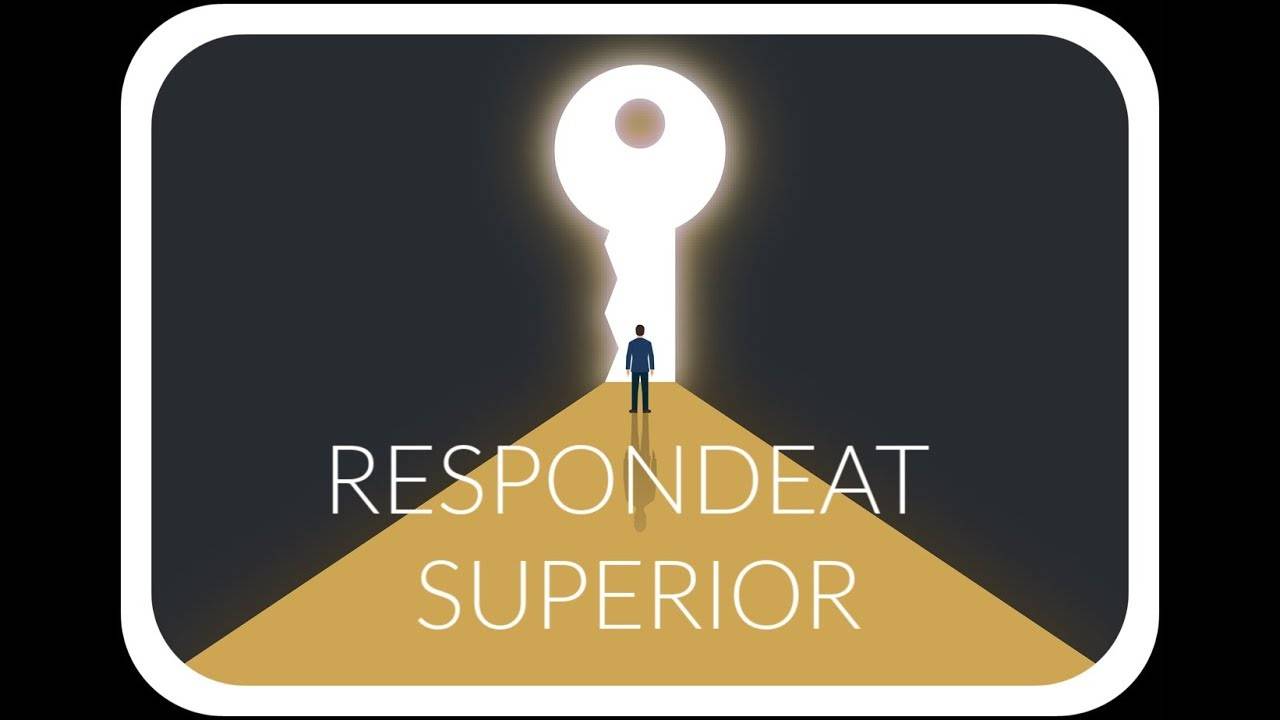Table of Contents
Respondeat Superior – Let the superior be responsible
Every person is no doubt, responsible for his own acts, but in certain circumstances, he also becomes liable for wrongs committed by other persons. This is called VICARIOUS LIABILITY that is a liability incurred for, or instead of another. Thus, a master is liable for wrongful acts committed by his servants and a principal for the wrongful acts of his agents. The underlying principle on which such liability is fixed is RESPONDEAT SUPERIOR: Let the superior be responsible.
If it were not so, a master would employ a servant to do a wrongful act and a principal would likewise employ an agent to do so, and in both cases, the master or the principal would get away scot-free, and the wronged person would be left without a remedy.
The two main reasons underlying the application of this maxim are:
- It would generally be very difficult to prove that the master had actually authorized the servant to commit the act in question
- Secondly, the servant would normally not be financially sound to bear a large monetary liability, and a rich master could employ a poor servant to commit wrongful acts.
Thus, to borrow a familiar example from English Law, if the master is himself driving a carriage and causes injury to a passerby on account of his want of skill, he is, of course, liable. So also, if instead of driving it himself, he employs a servant to do it, the servant is only an instrument set in motion by the master, and whatever the servant does would, in law, be regarded as the act of his master. Qui facit per alium facit per se: He who does an act through another is deemed in law, to do it himself.
Illustrative cases where the maxim was applied:
Milner v. Great Northern Railway : (1884) 5 L.T*N. 367
A cloak-room clerk in the employment of a Railway Company to take parcels of the passengers from the cloak-room to the train as part of his duty. Whilst doing so one day, when he was coming back, he ran against another porter, who in turn dashed against the ticket collector and the ticket collector collided with the plaintiff‘s wife, causing injuries which resulted in her death. When the plaintiff sued the Railway Company, it was held that the Company was liable in damages, as, at the time of the accident, the clerk was acting within the scope of his employment.
Lambert v. Great Eastern Railway: (1909) 2 K.B. 776
A Railway Company was empowered to employ special constables. One such constable arrested a person for a felony without any reasonable cause. The court held that the Railway Company was -liable for the constable act.
ILLUSTRATIVE EXAMPLES WHERE MAXIM WAS NOT APPLIED:
Brinkly v. Farmers Elevator Mutual Insurance Co.:
In this case, the interesting issue before the court was whether, under the above maxim, a client is liable for the conduct of his lawyer which causes injury to a third party. The plaintiffs had sustained serious injuries in a collision due to the negligence of the defendant’s lawyer, Mr A, who was returning home after representing his client’s case when the accident occurred. The client denied any vicarious liability on his part. The court held that, even if it is argued that the relationship between the client and Mr A was one of agency, at the time of the collision, he was not engaged in the furtherance of the client’s business to such a degree that it could be said that the client had the right to direct and control his physical conduct. Accordingly, it was held that the client was not vicariously liable.
Deaton’s Proprietary Ltd. V. Flew: (1949) 79 C.L.R. 370
In this case, X entered the defendant’s hotel and spoke to a barmaid, who threw a glass of beer on his face. According to X, he had asked her a polite question but the bar-maid said that he had insulted. When the matter went to court, it was held that although the barmaid was liable, the owner of the hotel was not responsible as the barmaid’s act was an independent act which was not connected to the work which she was employed to perform.
Author: Akshada Sarpande,
MIT School of law, student of FY BBA LLB

